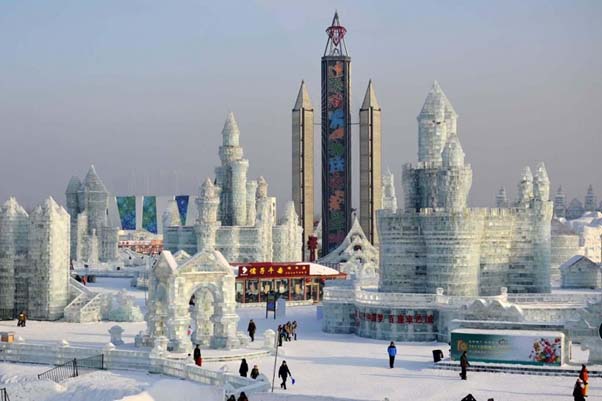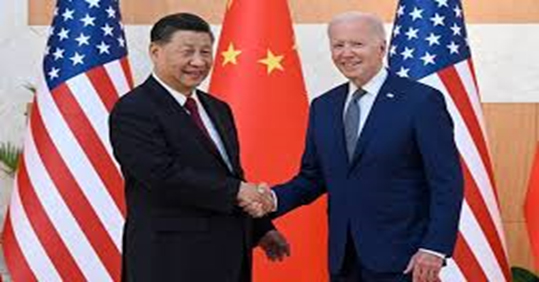G20 Summit and its wider implications upon the Asian Political Framework
Posted on : October 10, 2023Author : Debanjana Chakraborty

Krishna Priya Pallavi, in her article for ‘The Hindustan Times’, described the beautiful attires that the British Prime Minister Rishi Sunak and the First Lady Akshata Murty upon their visits during the historic G20 summit held in Delhi in September 2023. Pallavi wrote that ‘since she arrived in the country, Akshata’s simple yet elegant and bright coloured wardrobe has captured everyone’s attention.’ The attires of different dignitaries, be it the leaders of Great Britain or the Leaders of Japan, have garnered much attention and adoration in the widely discussed G20 Summit. This G20 Summit was held between September 9th and 10th of 2023 in the Indian Capital of Delhi.
The 18th G20 Summit marks India’s very first attempt at Presidency and focussed on the theme ‘Vasudevam Kutumbakam’. The Prime Minister of India, Narendra Modi, gladly greeted eminent leaders from different parts of the world. This include the following:-
- Rishi Sunak, Prime Minister of Britain
- Alberto Fernandez, President of Argentina
- Anthony Albanese, Prime Minister of Australia
- Louis Inacio Lula Da Silva, President of Brazil
- Justin Trudeau, Prime Minister of Canada
- Li Qiang, Premier of the People’s Republic of China
- Emmanuel Macron, President of France
- Olaf Schloz, Chancellor of Germany
- Georgia Meloni, Prime Minister of Italy
- Fumio Kishida, Prime Minister of Japan
- Raquel Buenroshtro Sanchez, Mexican Economist
- Yoon Suk-yeol, President of South Korea
- Sergey Lavrov, Foreign Minister of Russia
- Mohammad Bin Salman, Crown Prince and Prime Minister of Saudi Arabia
- Cyril Ramaphosa, President of South Africa
- Recep Tayyip Erdrogen, President of Turkey
- Joe Biden, Prime Minister of the United States of America
- Sheikh Hasina, Prime Minister of Bangladesh
- Azali Assoumani, President of Comoros
- Abdel Fatteh Al-Sisi, President of Egypt
- Pravind Jugnauth, Prime Minister of Mauritius
- Mark Rutte, Prime Minister of Netherlands
- Bola Tinubu, President of Nigeria
- Assad Bin Tariq, Deputy Prime Minister of Oman
- Lee Hsieg Loong, Prime Minister of Singapore
- Mohammad Bin Zayed Al Nayhan, President of United Arab Emirates.

There were many key issues that were brought into discussion by the participants which include climate change, food crisis, and World Economy along with Global Security concerns. Firstly, the Russia-Ukraine Conflict had been discussed at length by the members. There should be complete adherence to the norms and regulations of the UN Charter regarding armed aggression and ‘all states shall thereby refrain from the use or force to seek territorial acquisition and territorial integrity and political independence of any state’. Ukraine’s condition was seen with considerable precision and care. The members thus reached a diplomatic conclusion whereby they refrained from directly ‘criticizing’ Russia but wanted to take steps that ensured safer solution for Ukraine. Secondly, there was profound focus on the issue of climate change and therefore there should be greater acceleration of the objective of UNFCCC and effective implementation of the Paris Agreement (2015). Apart from this, a unanimous decision was also made on the sustainable consumptions of energy resources in a manner that enable the future generations to use them. Thirdly, another crucial issue that was discussed was Gender Equality and Women Empowerment. There shall be greater emphasis upon the provision of job opportunities, steadfast achievement of the Brisbane Goal that aimed towards the reduction of gap in labour participation along with a goal that is geared towards imparting education across all levels and spheres.
Lastly, there was also significant steps towards the creation of greater inclusivity so that more representations shall be ensured. Thus, it read:-
‘Recalling our collective actions to stem earlier global crises, we are determined to steer the world out of its current challenges and build a safer, stronger, more resilient and inclusive and healthier future for our people and the planet’.
IMPACT OF G20 SUMMIT UPON ASIAN POLITCAL FRAMEWORK
The G20 Summit, first and foremost, had been a huge sense of pride for India as this was her first ever attempt at assumption of Presidency of such a historic event. This has happened in a perfect conjunction to the successful landing of the Chandrayan-3 that found its way into the South Pole of the Moon on 23rd August 2023. The event, in fact, happened closer to the 2024 General Election and therefore seems a victorious situation for the Modi Government that claimed that ‘India is entering a period of strategic opportunity or what Modi has referred to as the Amrit Kaal’. The Russia-Ukraine Conflict and the G20 members’ diplomatic criticism of the Russian Aggression showcased the rise of a New Asian Power. It actually refer to the broadening role of India in the larger Asian Political Framework. Secondly, the overwhelming participation of a significant number of Asian Countries in this historical summit shall lead to a bigger cognizance upon the problems that plague them. With the promotion of greater economic stability and greater sense of co-operation, one can find the Asian countries coming together again to tackle the issues of Climate Change, Gender inequality as well as attempt to mediate armed aggression between countries. Thirdly, the UPS (Unitary Patent System) initiative that provides investors, businesses and different research organizations with a cost-effective and streamlined patent protection can also be adopted across Asian countries. This initiative, in the long run, will ensure Asian Unity and Oneness.
CONCLUSION
The G20 Summit stands out a ground-breaking event in the history of the World Politics. It, above all, marked the rise of India as a Global Power, in a group of rapidly emerging Developing countries. It also ensured a crucial step into Asian Unity in terms of the oneness it developed towards key issues on climate change, foreign aggression and also sustainable forms of energy consumption. Prime Minister of India Narendra Modi rightly argued in the session that:-
‘We need move from ‘I’ to ‘We’ for creation, innovation and viable solutions’
REFERENCES
- Prime Minister’s Remarks on the G20 Summit Session 2, Official Website
Link: https://www.g20.org/en/media-resources/speeches/september-23/session-2/
- Laksmidevi Somanath, ‘Implementing a Unitary Patent System in G20 countries: A Case Study’ ; 16th September 2023
- Overview of G20, Ministry of Earth Affairs
Link: https://moes.gov.in/g20-india-2023/moes-g20?language_content_entity=en
- New Delhi Leaders’ Declaration Final Adoption, Official Website
Link: https://www.g20.org/content/dam/gtwenty/gtwenty_new/document/G20-New-Delhi-Leaders-Declaration.pdf
- Krishna Priya Pallavi, ‘G20 Summit 2023: Akansha Murty’s elegant outfits for India Visit with UK PM Rishi Sunak’: 10th September 2023




